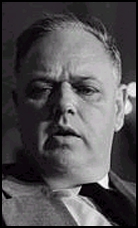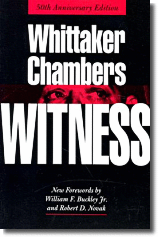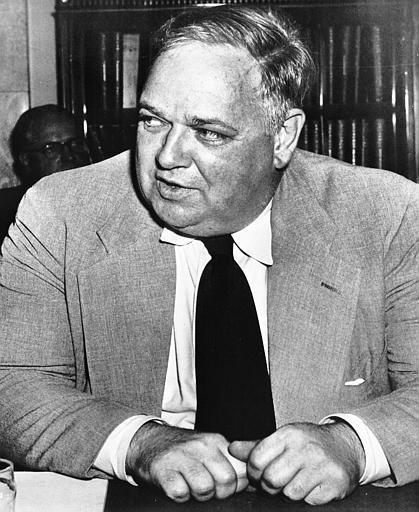Those who come to the decision-point in their lives as to whether to commit themselves to the Lordship of Christ must first go through a soul-searching with respect to their sins. While all sin separates from God, some sins have greater impact not only on their own lives but the lives of countless others.

Whittaker Chambers was a man who had to struggle through his former allegiance to communism before he could make his salvation decision. He had worked in the communist underground in America and had sought to advance the goals of Stalinist Russia. So he fought against the idea that he had to turn to God. After all, communism had taught him that God was a fantasy. But then he came to the end of himself. He confesses in his autobiography Witness,
Now in my despair, I asked at last: can it be God? I asked it first as an acknowledged absurdity which the mind is reduced to after rejecting every other possibility. I asked it, astounded that I could ask it at all, and with aversion as if something old, cunning and fetid from the past had reached out unfairly to possess my mind in its moment of greatest weakness. I associated God with ill-ventilated vestries and ill-ventilated minds.
Chambers didn’t relish being connected with something that had meant so little to him in the past. He had tried, during his college years, to pray, but nothing had come of that. Yet now he attempted to pray again, and as he did, he found a release he was not really expecting.
As I continued to pray raggedly, prayer ceased to be an awkward and self-conscious act. It became a daily need to which I looked forward. If, for any reason, I were deprived of it, I was distressed as if I had been deprived of some life necessity, like water.
I cannot say I changed. There tore through me a transformation with the force of a river, which, dammed up and diverted for a lifetime, bursts its way back to its true channel. I became what I was. I ceased to be what I was not.
Those last two sentences bring out a key point: God has made us for Himself. Whenever we are not at one with Him, we are not our true selves. Only be reattaching ourselves to the Source of all life can we be who we were created to be.

Chambers’s description of what happened in his life echoes what is found throughout the Scriptures. “What I had been fell from me like dirty rags. The rags that fell from me were not only Communism.”
Communism was only an outward manifestation of a warped worldview, one out of touch with the truths of God. Chambers continues,
What fell was the whole web of the materialist modern mind—the luminous shroud which it has spun about the spirit of man, paralyzing in the name of rationalism the instinct of his soul for God, denying in the name of knowledge the reality of the soul and its birthright in that mystery on which mere knowledge falters and shatters at every step.
If I had rejected only Communism, I would have rejected only one political expression of the modern mind.
He then writes of one particular day when that ultimate decision-point was thrust upon him. A thought intruded upon his mind: “You cannot do it. No one can go back.” That’s when God intervened.
As I stepped down into the dark hall, I found myself stopped, not by a constraint, but by a hush of my whole being. In this organic hush, a voice said with perfect distinctness: “If you will fight for freedom, all will be well with you.” . . .
What was there was the sense that, like me, time and the world stood still, an awareness of God as an envelopment, holding me in silent assurance and untroubled peace. There was a sense that in that moment I gave my promise, not with the mind, but with my whole being, and that this was a covenant that I might not break.

Chambers knew his life had to be different from that point on. He said, “On one side of that moment were nearly forty years of human waste on all the paths and goat paths of 20th-century error and action.” He came to grips with his past. Yet now there was a new future awaiting him: “On the other side was humility and liberation, the sense that the strength would be given me to do whatever I must do, go wherever I must go. The moment itself was something which to deny would be a blasphemy.”
Further, he knew the cost of this discipleship. He was not living in denial of what he was called to do as he gave his witness to the world and became front-page news with his testimony before Congress many years later.
I did not suppose that those words, “All will be well with you,” implied my happiness, for I never supposed that what man means by well-being and what well-being means to God could possibly be the same. They might be as different as joy and suffering. I only knew that I had promised God my life, even, if it were His will, to death.
This is my ultimate witness.
Yet that shouldn’t be only Chambers’s ultimate witness: it should be the ultimate witness for all who have come to that decision-point and made the same commitment of life—even to death.
